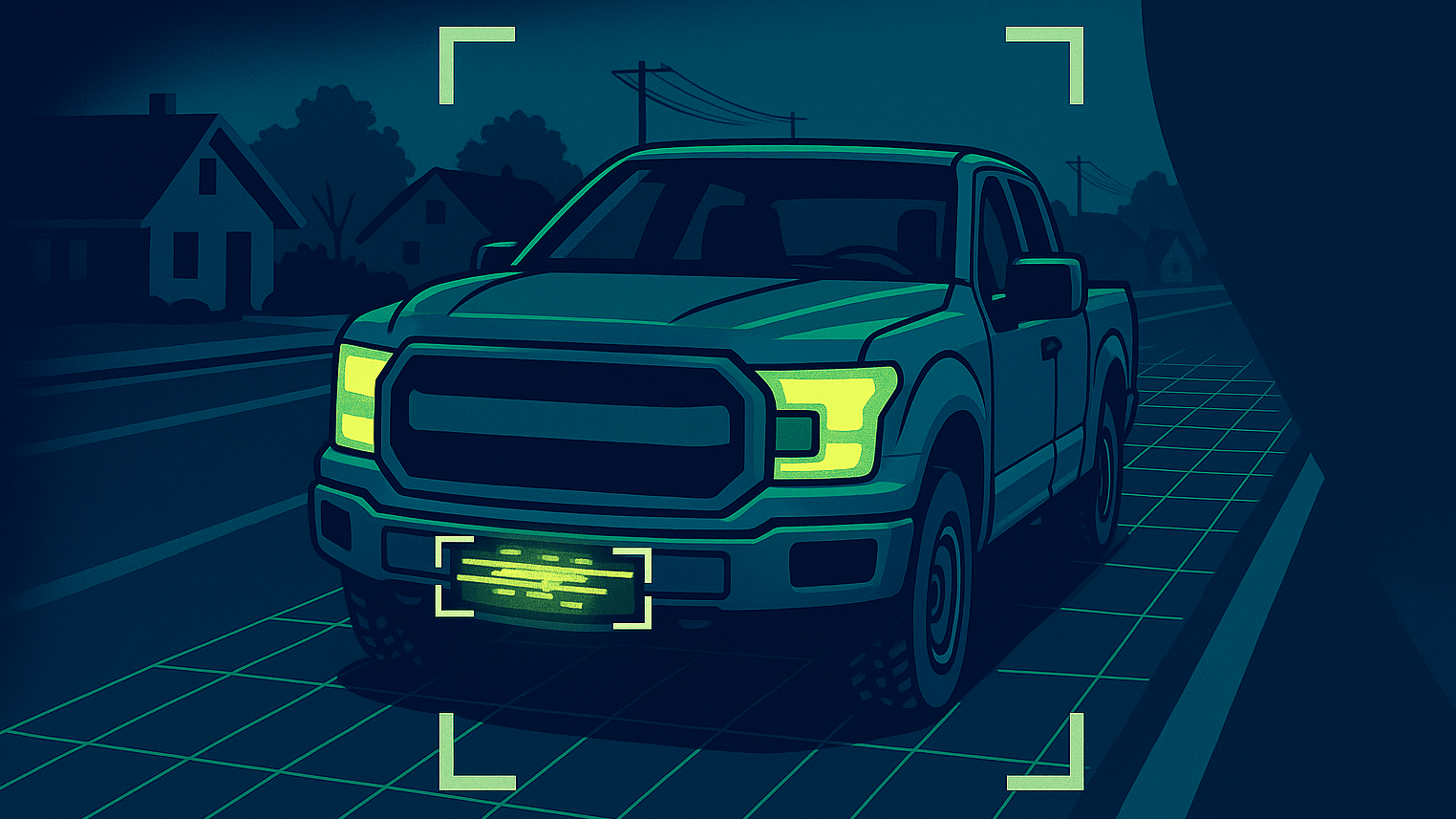YouTuber draws attention to AI-powered mass vehicle surveillance in the U.S.

YouTuber Ben Jordan demonstrates how to fool AI-powered license plate readers with invisible noise, subverting a surveillance technology that replaces GPS tracking without a warrant.
The project is a direct response to the business practices of companies like Flock Safety, which operate a largely unregulated surveillance network across the United States in close cooperation with retail chains and police departments.
"If you're in a city that has a lot of these cameras, it pretty much has the same effect as secretly sticking a GPS device on your car," explains YouTuber Ben Jordan in his video.
The problem, however, extends far beyond the mere tracking of license plates and movement patterns. In cities with dense coverage by Flock or similar camera systems, a complete movement profile of every vehicle is created over time. The system logs not only the location and time of a sighting but also additional data such as vehicle type, bumper stickers, damage, or other unique features. Through continuous networking and data correlation with other sources—such as shopping habits or social media activity—detailed behavioral and movement profiles of individuals can be assembled.
The U.S. Supreme Court emphasized in the 2018 case of Carpenter v. United States that, as with GPS information, "the timestamped data provides an intimate window into a person’s life, revealing not only his particular movements, but through them his ‘familial, political, professional, religious, and sexual associations.’" These location records, the Court noted, “hold for many Americans the ‘privacies of life.’” Like GPS monitoring, cell phone tracking is “remarkably easy, cheap, and efficient compared to traditional investigative tools.”
Nevertheless, companies like Flock Safety operate in a largely unregulated environment where such comprehensive surveillance and data linkage are possible without judicial oversight. The scope and depth of this warrantless data collection far exceed traditional police surveillance methods.
From the parking lot to the shopping cart
According to Jordan, the reach of this data collection doesn't end on public roads. Major retail chains like Walmart and Home Depot are also Flock Safety customers. They link the vehicle data captured in their parking lots with the information they collect inside the store: shopping behavior, payment information, and sometimes even biometric data and psychological profiles. According to Jordan, these comprehensive datasets are then passed on to data brokers and can be accessed by law enforcement agencies, including Immigration and Customs Enforcement (ICE), which he alleges has led to raids at Home Depot locations.
Shifting liability to the taxpayer
Flock Safety doesn't sell its cameras; it leases them as a "Security-as-a-Service" to police departments, businesses, and even homeowners' associations. The contracts are structured to absolve Flock Safety of nearly all liability in the event of malfunctions or false identifications. Jordan points to a case where a family was held at gunpoint by police after a license plate reader error; they later received a $1.9 million settlement—paid for by taxpayers, not Flock.
At the same time, the company invests millions in lobbying to prevent stricter regulation. Flock Safety has received nearly half a billion dollars in venture capital since its founding, and was recently valued by investors at around eight billion dollars. Flock and its primary investor, Andreessen Horowitz, have collectively spent over $92 million on lobbying, with the vast majority of that spending occurring in the last year.
Adversarial noise: fighting AI with Its own weapons
To technically counter this form of surveillance, Jordan developed a method that uses "adversarial noise" to deliberately confuse automated license plate reader (ALPR) systems like YOLOv8 or OpenALPR. His model generates invisible patterns that can be applied to a license plate. While the plate remains legible to the human eye, the AI either misreads it or fails to detect it at all. "And if we could figure out what pattern is breaking the image segmentation… then it's possible that you could just have a license plate holder that doesn't obfuscate the plate at all," Jordan explains, highlighting the potential of his research. It’s an attempt to reclaim a degree of digital privacy through technical means.
The European GDPR framework
In the European Union, such a business model would be virtually inconceivable. The General Data Protection Regulation (GDPR) establishes data protection as a fundamental right and requires a clear legal basis, explicit opt-in consent, and strict purpose limitation for the processing of personal data. The warrantless mass collection of citizens' movement data by a private company, its linkage with shopping data, and its transfer to authorities without a court order would fundamentally violate the principles of data minimization and purpose limitation. Jordan's project thus appears as a form of "DIY data protection" in a legal vacuum—one that is filled by strict laws in Europe.
AI News Without the Hype – Curated by Humans
As a THE DECODER subscriber, you get ad-free reading, our weekly AI newsletter, the exclusive "AI Radar" Frontier Report 6× per year, access to comments, and our complete archive.
Subscribe nowAI news without the hype
Curated by humans.
- Over 20 percent launch discount.
- Read without distractions – no Google ads.
- Access to comments and community discussions.
- Weekly AI newsletter.
- 6 times a year: “AI Radar” – deep dives on key AI topics.
- Up to 25 % off on KI Pro online events.
- Access to our full ten-year archive.
- Get the latest AI news from The Decoder.